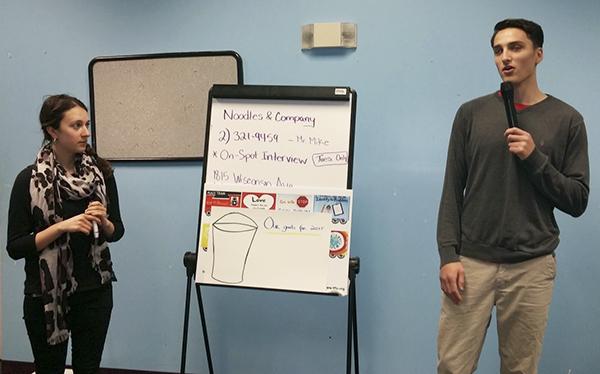From placing lily pads in the Anacostia River to planting seeds with children, GW students are focusing on making D.C. more environmentally friendly with help from a University sponsor.
The University named four students and their partners as winners in its efforts to encourage students to help both local communities and the environment. The Eco-Equity Challenge is the first of GW’s contests to push students to think about sustainability and Siemens Industry, a technology company whose U.S. division is headquartered in the District, split $15,000 among the four groups to help the students carry out their plans.
The University first announced the Eco-Equity Challenge in January with a focus on getting students involved in the community through partnerships with local nonprofit organizations and schools.
The contest is one of several new sustainability programs that have begun during University President Steven Knapp’s administration. GW was awarded a “green ribbon” from the U.S. Department of Education for “comprehensive green efforts across academics, operations, partnerships and planning,” according to a University release last week.
Junior Ellie Davis will walk into D.C. public school classrooms with $2,500 to recruit her volunteers. Davis, an environmental studies major, spearheaded a project to teach students how to take advantage of technology and use it to better understand the neighborhoods in which they live.
Her team will teach students how to use “open-source,” or free, online platforms that will allow the students to create maps of their neighborhoods, helping the rest of the world see exactly what is going on in the students’ small neighborhoods, Davis said.
Davis is partnering with Higher Achievement, an after-school enrichment program, and Achievement Prep, a charter school in Southeast D.C., to teach students how to walk around their neighborhoods and and find identifying features, like locations of stop signs or street potholes that need to be fixed.
She said officials in Southeast generally struggle to keep students enrolled in classes after they leave middle school. The area may face challenges, but she said her project focuses on giving students a productive and worthwhile project to concentrate on and help keep them interested in the classroom.
Max Grossman, a sophomore majoring in international affairs and geography, teamed up with a few GW students to work with a community center near the Capitol building. He’s spent the past two years working at Little Friends for Peace, a center that teaches students how to avoid violence and channel that energy into growing vegetables in a “Peace Garden.”
He plans on amping up programming and the facilities around the center by helping to pay for the center’s daily lessons and adding a rain barrel so children can recycle the water for the garden. He declined to say how much money he received for the project.
Little Friends for Peace, the local nonprofit that runs the Peace Garden, educates children living in low-income areas on the basics of sustainability and team building, Grossman said. He hopes to bring his changes to the center this fall.
MJ Park, who co-directs Little Friends for Peace, said she’s looking forward to seeing some facilities at the center get a face-lift. She said the rain barrel would be a great teaching tool for students at the center and “make it a little bit more vibrant.”
Paige Cooper, a rising senior majoring in international affairs and French, won $8,000 for “Project Lily Pad.”
In a partnership with the nonprofit Living Classrooms and D.C. Public Schools, Cooper’s plan gets students to protect the Anacostia River along Kingman Island and learn about the environment by designing and building floating wetland islands, structures that help improve water quality by acting like natural filters.
In an urban area where land is scarce, floating islands are both useful and cost effective, Cooper said.
She added that no similar project exists in the D.C. area, so she hopes Project Lily Pad will attract a lot of attention.
Cooper said she chose Living Classrooms as a partner because of its past experience with wetland projects, including one in Baltimore’s Inner Harbor.
Although Cooper is the only GW student working on this project, she said she’ll need GW volunteers who have an interest in service or the environment to pursue the project.
Elana Oser, a sophomore majoring in environmental studies, will partner with engineering students and Rooftop Roots, a student organization on campus, to form an educational program that will donate food to areas in D.C. that need it most.







